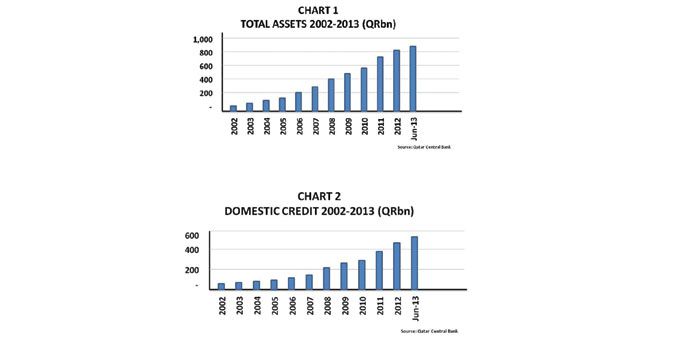Qatar’s banking sector is set to meet the country’s infrastructure finance demand in excess of $100bn until 2022, says a new report.
Qatar’s financial sector has indeed enough liquidity to provide the capital and project finance required to deliver mega projects in the country up to 2022 and beyond, Meed said.
“We are talking about a huge scale of infrastructure financing requirement,” said International Bank of Qatar (IBQ) head (corporate banking) Bhupendra Jain.
“The metro alone is going to cost about $35bn and the port project between $7bn and $8bn. Then there are roads, electricity and water, sewage, Aviation City, stadia for the World Cup in addition to hotels, new shopping malls and Lusail City.
“The bonding requirements for these projects will be a percentage of these numbers and that’s a very complex algorithm. We expect infrastructure finance demand will be in excess of $100bn,” Jain said.
Already, Qatar’s financial sector has been a key foundation of its still rapidly developing economy, with finance, insurance and reinsurance outputs now accounting for about 10% of the country’s GDP last year.
Moreover, total assets for Qatar’s banking industry increased at a compound annual rate of 30% in the last 10 years to almost $225bn, while bank lending to domestic customers grew by a similar amount in the same period to $130bn.
“Bankers say they expect the aggregate balance sheets of Qatar’s banks will continue growing as government investment in projects flows to construction companies and other service providers.
“Huge further increases in deposits with local and international banks operating in Qatar are also expected and will be provide huge leverage for domestic borrowers,” Meed said.
An update on Qatar’s infrastructure developments besides finance and economy will be on focus at the Qatar Banking Summit hosted by Meed at the Renaissance Doha City Centre Hotel on September 10 and 11.
HE the Qatar Central Bank Governor Sheikh Abdulla bin Saoud al-Thani will deliver the event’s keynote address where he is expected to provide a comprehensive overview of the latest initiatives Qatar is implementing as part of its aspirations to become a leading financial hub in the Gulf region.
This will be followed by a comprehensive overview of Qatar’s project finance and banking sector, with dedicated panels discussing the most attractive opportunities and strategies that lending institutions and stakeholders can adopt in order to succeed in Qatar’s lucrative banking sector from a lenders’ perspective; as well as sessions on infrastructure finance, where speakers will examine the challenges and capital market options for financing mega projects.
“Project finance stakeholders will have access to the latest information on infrastructure financing, and gain a better understanding of the implications of emerging risks as well as which capital market options (from sukuks and syndications to PPPs and IPOs) are the best way forward in funding mega infrastructure projects,” said Edmund O’ Sullivan, chairman, Meed Events, organiser of the Qatar Banking Summit.
Equally important, attendees will have an inside track on how to leverage opportunities offered by Sharia-compliant banks, which are now playing a growing role in meeting the soaring demand for construction and project finance; in addition to being able to examine new approaches for infrastructure financing, such as project bonds, private finance initiatives (PFI) and re-financing.
An emerging issue is the capacity of local banks to absorb the volume of business being generated by the major Qatari projects. When asked whether Qatar’s financial system is geared up to absorb these flows, Jain says yes.
“That is why we will increasingly see local banks coming together to finance these large projects. Regional and foreign banks are also increasingly coming in to get a share of the action in Qatar,” he added.
Despite the massive activity currently taking place in Qatar’s projects industry and its continued rise in the next few years, there is a consensus among experts that the country’s regulators should manage the timing of major infrastructure finance transactions, which will also be discussed in the summit.
“I estimate the value of infrastructure required worldwide to 2030 is roughly equal to global GDP today,” said Anthony Holmes, co-founder and director of the Institute for Infrastructure Studies.
“This is beyond the capacity of the global financial system to deal with. If we are going to do all that, we will have to find a different system for financing projects and ration the finance.
“Another factor is that infrastructure spending is not distributed evenly across the world. One of the concentrations of infrastructure spending is in Qatar. This will deliver a skewed distribution,” Holmes added.

